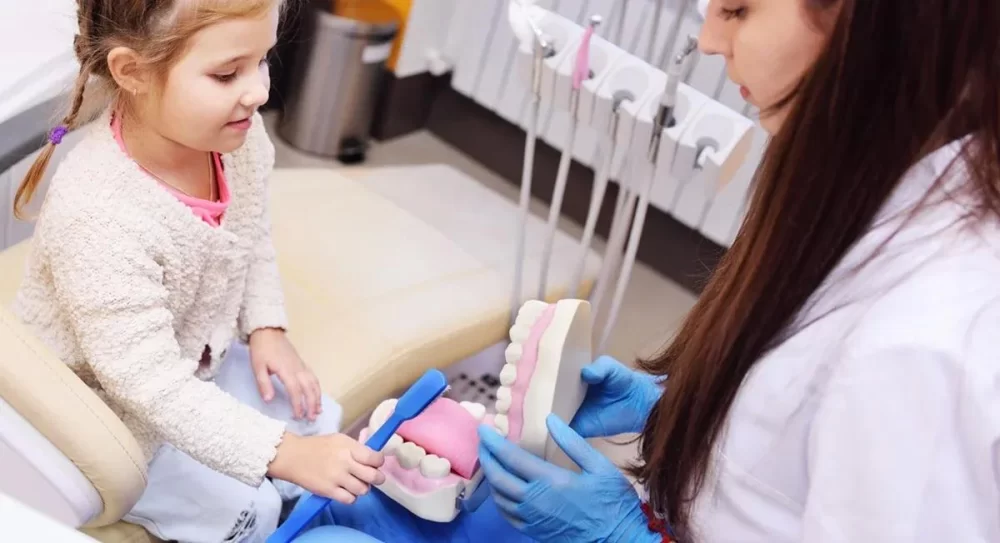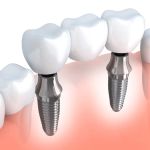
The Importance of Dental Care in Children’s Early Years
When it comes to raising a healthy child, proper dental care should be a top priority from the very beginning. Establishing good oral hygiene habits during the early years can help prevent tooth decay, gum disease, and other dental issues later on in life. As parents, it's essential to understand the importance of dental care in children's early years and implement practices that will set them up for a lifetime of healthy teeth and gums.
1. Why Early Dental Care is Essential for Children
The first few years of a child’s life are critical in terms of developing lifelong dental health. Baby teeth, or primary teeth, are important not only for biting and chewing but also for guiding the permanent teeth into place. Poor oral hygiene during these early years can result in tooth decay, which may impact the development of their permanent teeth. It's also important to note that children are more likely to develop good habits if they are introduced to dental care at an early age. According to the American Academy of Pediatric Dentistry (AAPD), children should see a dentist by their first birthday to establish a baseline of their oral health and begin preventive care.
Furthermore, early dental visits provide the opportunity for parents to learn about proper care techniques and receive guidance on how to help their child brush and floss correctly. These visits also allow the dentist to identify any potential dental issues, such as cavities or alignment problems, before they become more serious. Early intervention is always more effective than addressing dental problems later on when they may require more extensive treatment.
2. How to Start Dental Care for Babies
Starting dental care for your child should begin even before their first tooth appears. Gently wipe the baby’s gums with a soft, damp cloth after feedings to help keep the mouth clean. Once the first tooth emerges (usually around 6 months), use a soft-bristled toothbrush and a small amount of fluoride toothpaste to clean the tooth. Avoid using adult toothpaste, as it contains too much fluoride for young children.
Parents should also avoid giving babies sugary drinks, including fruit juices and sugary formula, as these can increase the risk of tooth decay. Instead, opt for water or breast milk, which are better for their oral health. By cleaning their gums and teeth regularly, you can help prevent plaque buildup and maintain a healthy mouth.
3. Establishing Healthy Habits Early
As children grow older, it's crucial to establish healthy oral hygiene routines. Parents should encourage children to brush their teeth twice a day and floss daily, starting when the child has two teeth that touch. To make brushing a fun experience, try using kid-friendly toothbrushes with their favorite characters or colorful handles, and fluoride toothpaste in fun flavors.
It's also essential to supervise your child while brushing until they are about 7 or 8 years old, as they may not have the coordination necessary to brush effectively on their own. Set a good example by brushing your teeth with your child so they can learn from your habits. The goal is to teach your child that brushing and flossing are part of their daily routine and are just as important as eating and sleeping.
4. Regular Dental Checkups
As soon as your child has their first tooth, regular dental checkups should begin. These checkups should occur every six months, or as recommended by your dentist. Routine visits help catch potential issues early, including cavities, gum disease, or problems with the alignment of teeth. Regular dental visits also help your child become familiar with the dental office, reducing any anxiety or fear associated with future visits.
In addition to the dentist’s examination, fluoride treatments and dental sealants can help protect your child's teeth from cavities and decay. Fluoride strengthens enamel, while sealants act as a barrier to prevent bacteria and plaque from settling in the grooves of the back teeth. By visiting the dentist regularly, you ensure your child’s teeth are being properly monitored and protected.
5. Nutrition and Oral Health
Diet plays a significant role in maintaining healthy teeth during childhood. Encourage your child to eat a balanced diet rich in calcium, vitamins, and minerals. Foods like milk, cheese, yogurt, leafy greens, and fortified cereals provide the nutrients necessary for healthy teeth. Limiting sugary snacks and drinks is equally important, as sugar feeds the harmful bacteria in the mouth that cause cavities. Be mindful of sticky foods like raisins or granola bars, which can cling to teeth and lead to plaque buildup.
For children, the goal is to balance good nutrition with proper oral care to prevent cavities. Also, ensure your child drinks plenty of water, especially after meals, to help rinse away food particles and reduce the risk of plaque formation. By teaching your child to make healthier food choices, you’ll be helping them establish habits that contribute to a lifetime of dental health.
6. The Role of Parents in Children’s Dental Health
Parents play a key role in ensuring that their child’s dental health is a priority. This means actively encouraging good dental habits, making sure your child brushes and flosses regularly, and providing access to healthy foods. Additionally, it's essential to model good oral hygiene by brushing and flossing in front of your child. Children are more likely to adopt these habits if they see their parents practicing them.
Parents should also monitor their child’s oral health and make regular dental visits a routine part of their healthcare regimen. If you notice any signs of tooth pain, swelling, or bleeding gums, it’s important to consult a dentist immediately. Early intervention is key to preventing more serious dental problems later in life.
7. The Importance of Early Intervention
Sometimes, despite the best efforts, children may develop dental problems, such as cavities or misalignment of their teeth. Early intervention by a pediatric dentist can help prevent these issues from becoming more severe. For example, if a child has early signs of cavities, the dentist may recommend fluoride treatments, sealants, or fillings to prevent further damage. Similarly, if there are issues with tooth alignment, orthodontic treatment may be recommended at an early age to address the problem before it becomes more complex.
By addressing these issues early, you ensure that your child’s oral health is maintained and that they are set up for a lifetime of healthy smiles. Pediatric dentists specialize in treating young children’s dental needs and can guide you through the best options for your child’s oral care.
In conclusion, dental care in children’s early years is essential for ensuring lifelong oral health. By implementing good oral hygiene habits early, visiting the dentist regularly, and encouraging healthy eating habits, you are giving your child the best chance at a healthy smile. Don't wait until problems arise—start early and make dental care a priority in your child's life. For more information on how to maintain your child’s oral health, visit Dentistry Toothtruth, where we offer expert advice and products to support your child’s dental care journey.
OLD Keywords-8: dental care for children, early dental care, preventing cavities in children, child oral health, dental hygiene in childrenSEO Title: Importance of Dental Care in Children’s Early YearsSEO Keywords: dental care for children, early dental care, preventing cavities in children, child oral health, dental hygiene in childrenSEO Description: Discover the importance of dental care in children's early years. Learn essential tips for preventing tooth decay and setting healthy habits for your child's dental health.






 Perry L Jeffries DDS and Associates PA - Raleigh2.0 (53 review)
Perry L Jeffries DDS and Associates PA - Raleigh2.0 (53 review) Almond Dental Maple Grove4.0 (413 review)
Almond Dental Maple Grove4.0 (413 review) Waterford Dental Health4.0 (1118 review)
Waterford Dental Health4.0 (1118 review) Bismarck Advanced Dental and Implants4.0 (657 review)
Bismarck Advanced Dental and Implants4.0 (657 review) Chalet Dental Care5.0 (739 review)
Chalet Dental Care5.0 (739 review) Straumann USA LLC3.0 (10 review)
Straumann USA LLC3.0 (10 review) The Importance of Oral Health Education During Pregnancy for a Healthy Pregnancy
The Importance of Oral Health Education During Pregnancy for a Healthy Pregnancy Best Tips for Brushing Your Teeth Properly for Healthy Gums: Essential Techniques for Oral Health
Best Tips for Brushing Your Teeth Properly for Healthy Gums: Essential Techniques for Oral Health Why Skipping Dental Checkups Can Lead to Bigger Oral Health Problems
Why Skipping Dental Checkups Can Lead to Bigger Oral Health Problems Advantages of Porcelain Dental Restorations
Advantages of Porcelain Dental Restorations How Can Diabetes Cause Tooth and Gum Problems? Preventing and Managing Oral Health Issues
How Can Diabetes Cause Tooth and Gum Problems? Preventing and Managing Oral Health Issues Healthy Habits for Promoting Good Oral Health and Hygiene: Tips for a Healthy Smile
Healthy Habits for Promoting Good Oral Health and Hygiene: Tips for a Healthy Smile